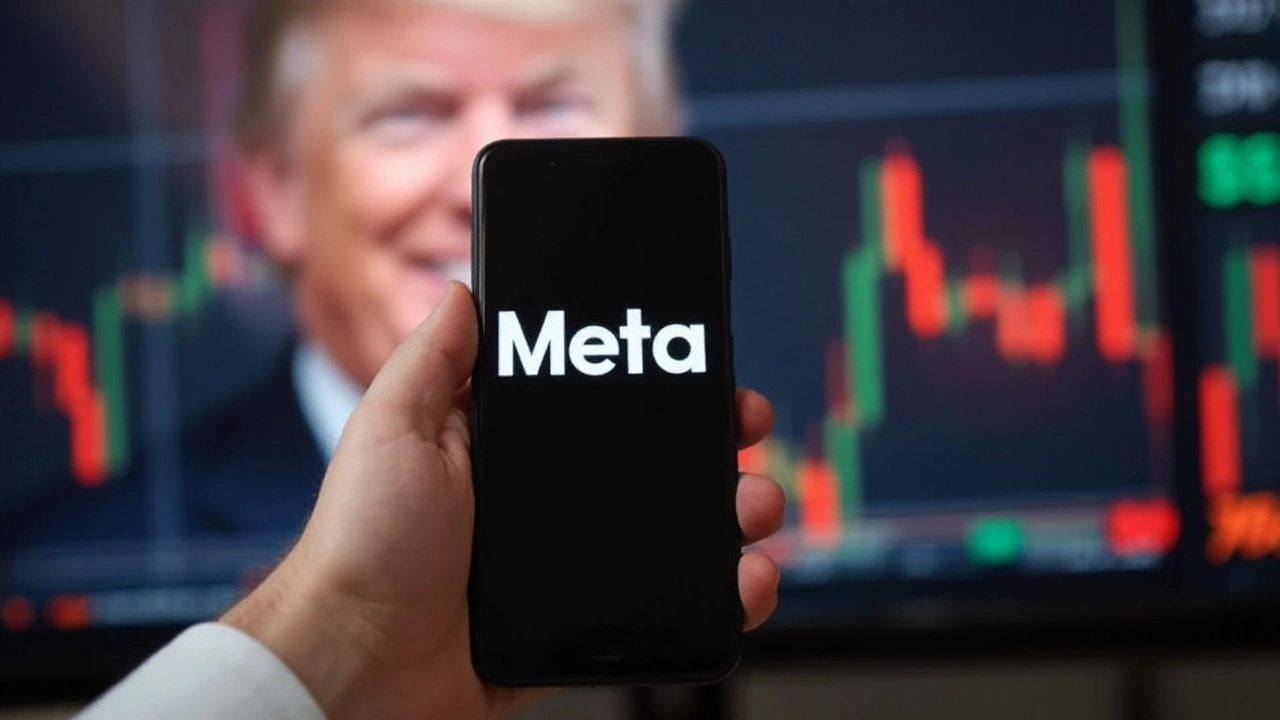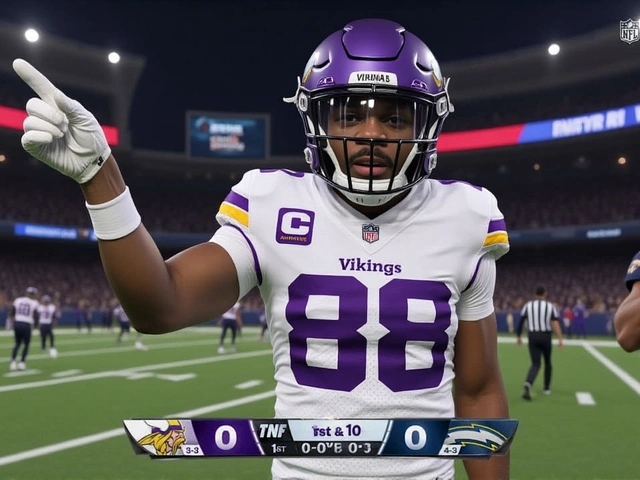 12
Sep,2025
12
Sep,2025
Australia’s biggest privacy payout lands, years after a tiny app exposed huge data
Fifty-three. That’s how many Australians actually installed the “This Is Your Digital Life” quiz on Facebook. Yet the app’s reach rippled far wider: an estimated 311,074 Australians may have had their information scooped up through friend connections. Now, after years of legal wrangling, Meta has agreed to a Meta $50 million settlement with Australia’s privacy regulator to close the book on the Cambridge Analytica saga—at least locally.
Announced on December 17, 2024, the A$50 million deal is the largest privacy-related payment Australia has ever secured. The Office of the Australian Information Commissioner (OAIC) accepted an enforceable undertaking from Meta that includes a compensation program for eligible Australian Facebook users caught up in the data sharing that enabled Cambridge Analytica’s political profiling machine. Meta made the undertaking “without admission of liability,” and the Federal Court civil penalty case (NSD 246 of 2020) has been withdrawn.
Australian Information Commissioner Elizabeth Tydd called the payment a clear signal to companies that operate here: be transparent, be accountable, and give people real control over how their data is used. In her words, the scheme is a “significant amount” and a warning shot to anyone downplaying privacy obligations under Australian law.
The case centers on a familiar story with sharp local angles. Starting in late 2013, Cambridge University researcher Aleksandr Kogan built a Facebook app that harvested a user’s profile data—and, crucially under Facebook’s old rules, the data of that user’s friends. That access was legal under Facebook’s platform policies at the time but wildly out of step with what most people thought they were consenting to. Cambridge Analytica then used personal information for targeted political profiling. The scandal exploded in 2018 and helped trigger a global reckoning over how social platforms handle data.
In Australia, the OAIC alleged Meta (then Facebook) breached the Privacy Act 1988 and the Australian Privacy Principles by allowing personal information to flow to the Kogan app and onward to third parties. While only a handful of Australians installed the app, the “friend permissions” design multiplied the exposure. The OAIC launched court action in March 2020; mediation followed in 2024 and produced this settlement.

What the settlement means for users, regulators, and Big Tech
First, the money. The A$50 million will fund a payment program for eligible Australian Facebook users affected by the Cambridge Analytica matter. The OAIC and Meta will set out the rules and a process for claims, but they haven’t published the fine print yet. Expect criteria tied to whether your data could have been accessed through the app’s friend network at the time, and a claims window with identity and account verification. Timing and per-person amounts will depend on the scheme’s design and administration costs.
Second, the legal mechanics. An “enforceable undertaking” is a formal pledge a regulator can accept instead of pushing on with a court fight. It’s legally binding. If a company breaks it, a court can step in. In privacy cases, these undertakings often come with commitments around compensation, internal controls, training, audits, and reporting. The OAIC hasn’t released the full text, but the headline here is clear: money for users, case closed, and obligations that sit on the record.
Third, the liability angle. Meta did not admit wrongdoing. There’s no court finding that it breached the Privacy Act or the Australian Privacy Principles. That’s common in negotiated outcomes, especially where a company wants certainty without setting a legal precedent that could haunt it in other jurisdictions.
This is also a marker for Australia’s tougher privacy stance. After major breaches at Optus and Medibank, Parliament cranked up penalties in 2022 for serious privacy breaches to the greater of A$50 million, three times the benefit obtained, or 30% of adjusted turnover. Government has also flagged broader Privacy Act reforms to modernize consent rules, boost individual rights, and tighten the screws on data minimization. Against that backdrop, the OAIC landing the nation’s largest privacy payment sends a message: enforcement is no longer a paper tiger.
Globally, the Cambridge Analytica fallout already cost Meta billions. In 2019, the U.S. Federal Trade Commission imposed a US$5 billion penalty tied to Facebook’s privacy practices and oversight. In the UK, the Information Commissioner’s Office fined Facebook £500,000 under pre-GDPR rules—the statutory maximum at the time. In 2023, Meta agreed to a US$725 million class-action settlement in the United States covering a broad range of data-sharing practices, including issues raised by Cambridge Analytica. Australia’s result adds a local chapter to a saga that reshaped how platforms govern third‑party access.
For users, the practical question is simple: what should you do now? Until the OAIC and Meta publish details, there’s no form to fill out. But there are steps worth taking today to tighten your privacy and prepare for a claims process.
- Run Facebook’s privacy check-up. Lock down who can see your posts, profile details, and friends list.
- Audit app permissions. Remove any old apps and games you don’t use. These often sit forgotten with data access you no longer want.
- Review ad settings. Limit off-Facebook activity tracking and reduce categories used for ad targeting.
- Turn on security features. Enable two-factor authentication and alerts for unrecognized logins.
- Watch for official guidance. The OAIC and Meta will outline eligibility, evidence needed, and how to claim. Avoid any third-party “help” sites.
The mechanics of the original breach are worth spelling out. Before Facebook rewired its platform in 2014 and tightened further in 2018, apps could request data not just from the person who clicked “Allow,” but also from that person’s friends—information like names, likes, and other profile fields, depending on settings. That “friends’ data” loophole turned a small quiz into a mass-data pipeline. Once the scope became public, Facebook cut off broad friend access, launched an app review program, and barred developers who didn’t comply with new rules.
The Australian case drills into a core privacy concept: meaningful consent. If users don’t understand that saying yes to a quiz also shares their friends’ information, can that ever be considered genuine permission? The OAIC’s action implies no. The settlement pushes home the idea that companies must make data flows clear, and harden the default against silent leakage.
The decision to settle also shows why regulators often choose certainty over courtroom pyrotechnics. A trial can take years, swallow resources, and end in appeals. An enforceable undertaking delivers cash to affected people sooner and locks in commitments that a court can police. The trade-off is no precedent on the law—and no judicial stamp that Meta breached it. For many regulators, that’s still a win if it shifts behavior and compensates users.
There’s another backdrop here: the market now prices privacy risk. For global platforms, every jurisdiction adds variability—different laws, different appetites for penalties, different political pressures. A negotiated Australian outcome removes one liability line and reduces local uncertainty. It also sets a reference point for future cases in the region, especially as New Zealand, Singapore, and others scale up enforcement tools of their own.
What will the compensation look like per person? The honest answer: we don’t know yet. Per-user awards in privacy cases vary widely by scheme design, number of claimants, and administrative costs. The OAIC has indicated a payment program for eligible users. The criteria and amounts will determine whether this feels like a symbolic payout or a meaningful check. Either way, it puts money where Australia’s privacy principles are supposed to be: with people whose data was used without real say.
One more thread: accountability for third parties. Cambridge Analytica folded in 2018, but the episode still haunts the ecosystem—developers, data brokers, campaign firms. The lesson is simple: if your business depends on opaque data flows, the regulatory clock is ticking. Australia’s settlement doesn’t resurrect Cambridge Analytica, but it tightens the net around anyone tempted to exploit social graphs the way that firm did.
The coming months will answer the practical questions—who qualifies, how to claim, when payments arrive. For now, this stands as a clear signal of Australia’s enforcement mood: user data is not a free resource, and “everyone was doing it back then” is no defense. The small number of people who tapped a quiz a decade ago set off a chain reaction. The A$50 million price tag suggests that chain finally meets some resistance.
As for Meta, the company has spent years telling regulators and users it rebuilt its platform around stricter access, clearer controls, and stronger oversight of developers. This settlement is a reminder that trust doesn’t reset with a policy update—it’s earned, slowly, with guardrails that survive the next clever workaround. Australian users will soon get a chance to claim their share. The industry will get a reminder that consent must be real, not implied by a friend’s click in 2013.




